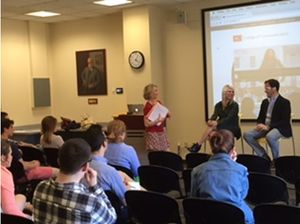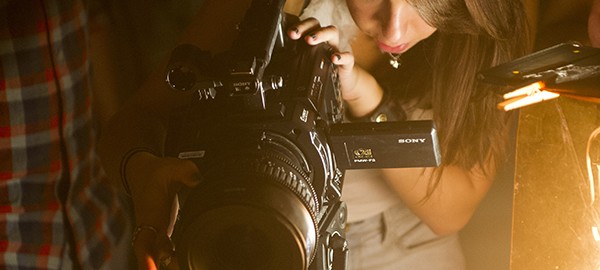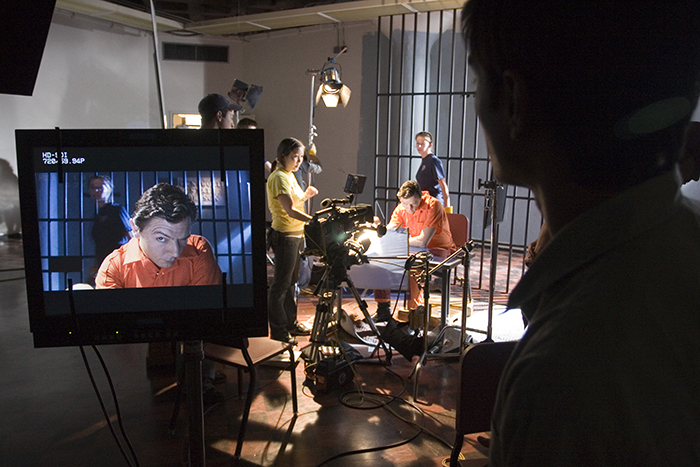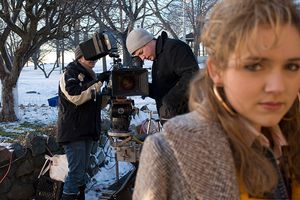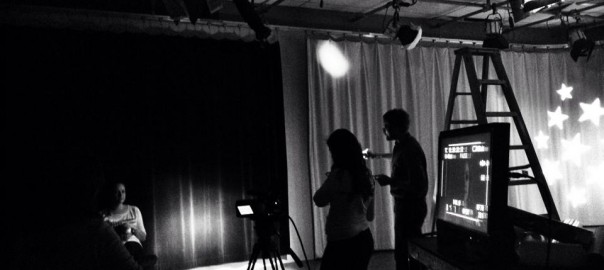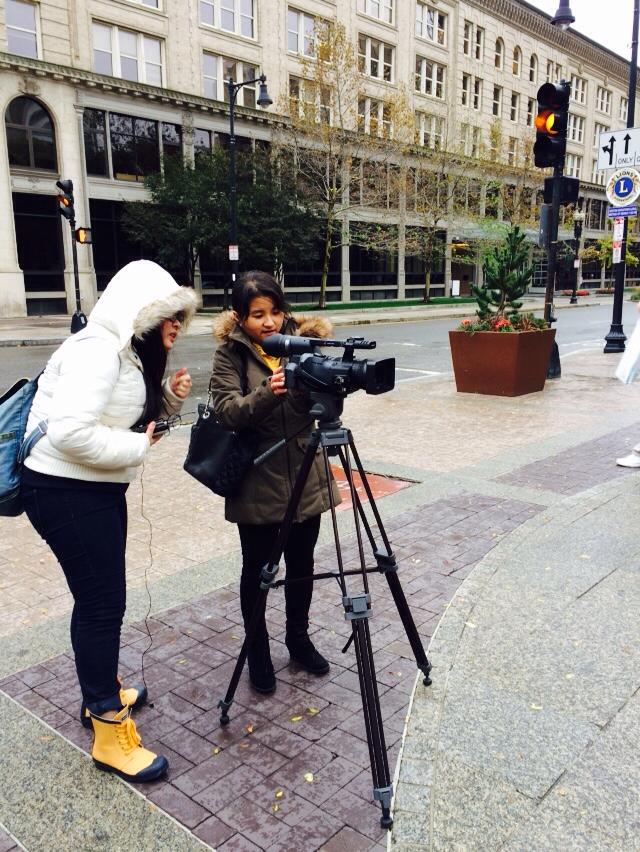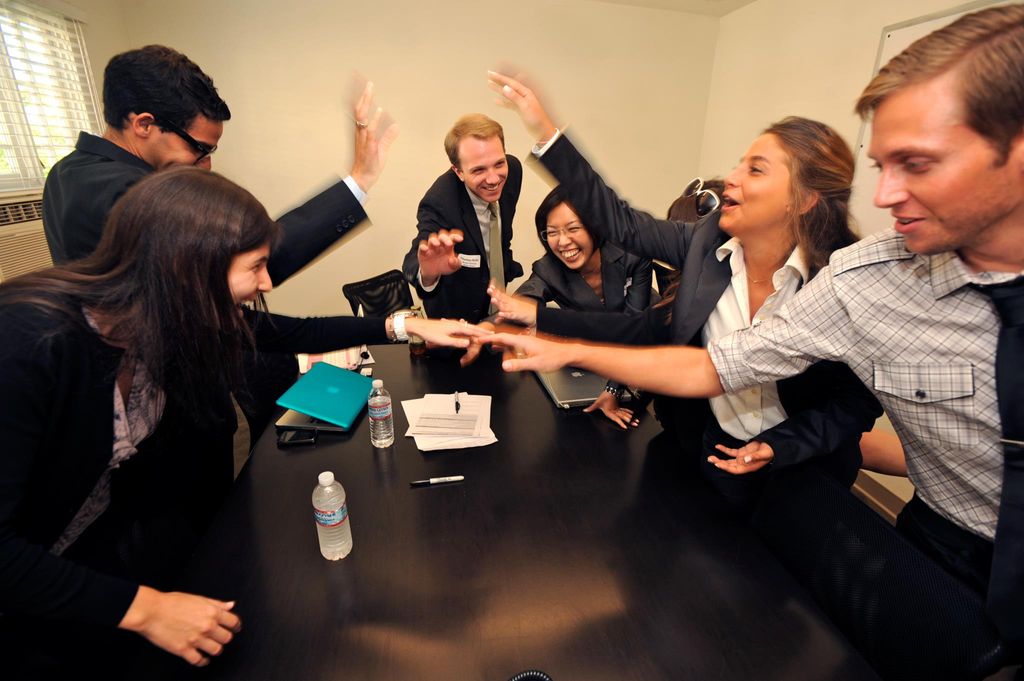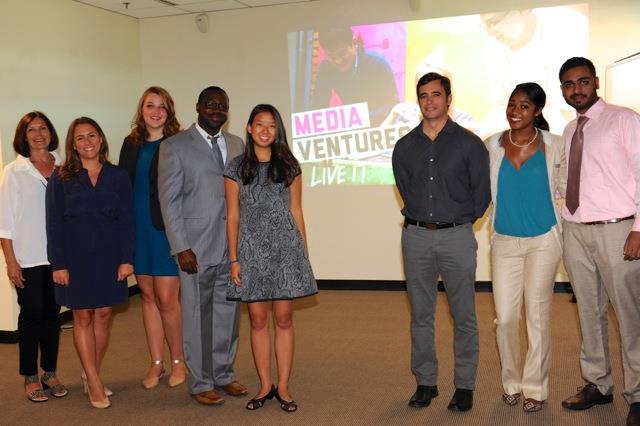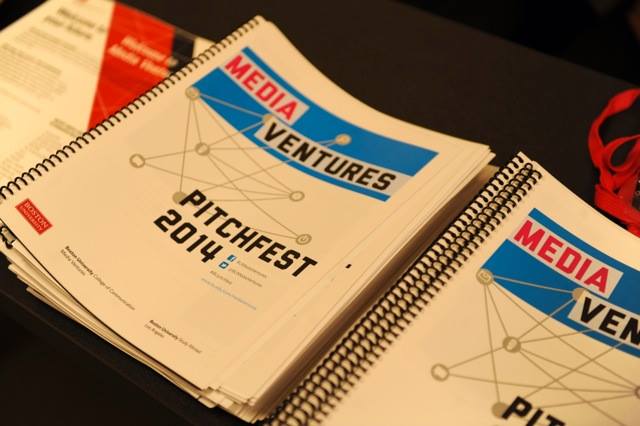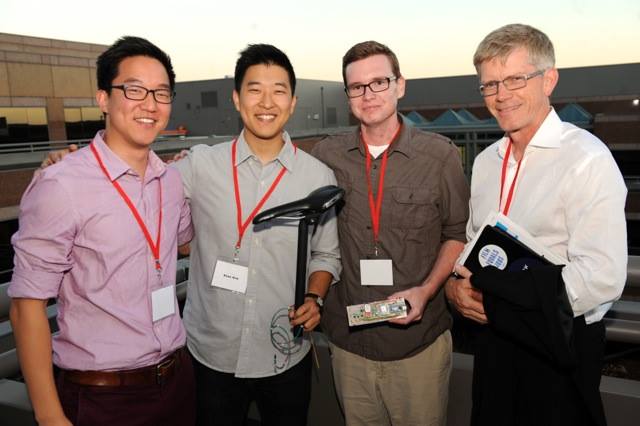By Keiko Talley
MS Journalism ’16
BU College of Communication
NFL—if you don’t watch the games, you know what the letters mean: National Football League. This year at COM, we were graced with the presence of two amazing producers who work with the NFL at an event called Producing Prowess. The two were guest speakers invited by Professor Andrea Kremer who teaches a class on the Art of the Interview.
Hilary Guy from the NFL Network, also a COM alumni, and Jordan Kronick from HBO Real Sports flew in from Los Angeles and New York respectively to give us an inside look as on their jobs as producers on various projects. When Guy started out at COM, she thought she wanted to be an on-camera reporter, but it wasn’t until her internship at the assignment desk at NBC that Guy started to fall in love with the jobs behind the camera. It was then that she decided to become a producer. Guy told students that the best thing a newcomer could do is to ask to learn a new job, or to observe a job they aren’t familiar with. Guy and Kronick both agreed that they remember those who offer to help out in other areas more than their designated jobs. She told students that was how she got to become a producer, showing her interests and making it her job to learn everyone else’s job.
Kronick discussed his newer project Death on Everest where he spent two ski seasons in Nepal to uncover the dangers of climbing Mt. Everest. He explained the process of finding the right characters for his story and discussed how as a documentarian, he has the freedom to take his time on some of his projects.
Guy works at a much faster pace, with quick turn-around on stories and covering breaking news. She later showed some of the interviews she produced with Andrea Kremer and the New England Patriots. She discussed with students the creative production that went into turning boring locker rooms into a magically lit set, and how she used metal cylinders and different lighting to change the scene to add more depth to interviews.
Producing Prowess introduced students to various other job opportunities that are available besides the on-camera talent. As a producer, it is important to keep your crew ready at all times. You almost act as a parent to the camera crew, talent, audio crew, and anyone else contributing to the project. It is important for students to know that there are various jobs available, and even though they won’t be in front of camera, the process could eventually lead them to that placement if their interest still holds. Andrea Kremer insists that learning how to produce and work behind the camera will be of tremendous help for when you’re in front of the camera because it gives you a better idea as to what the crew wants; learning behind the camera jobs will allow you to be one step ahead of the game as on-camera talent.
Picture Credit: Susan Walker
